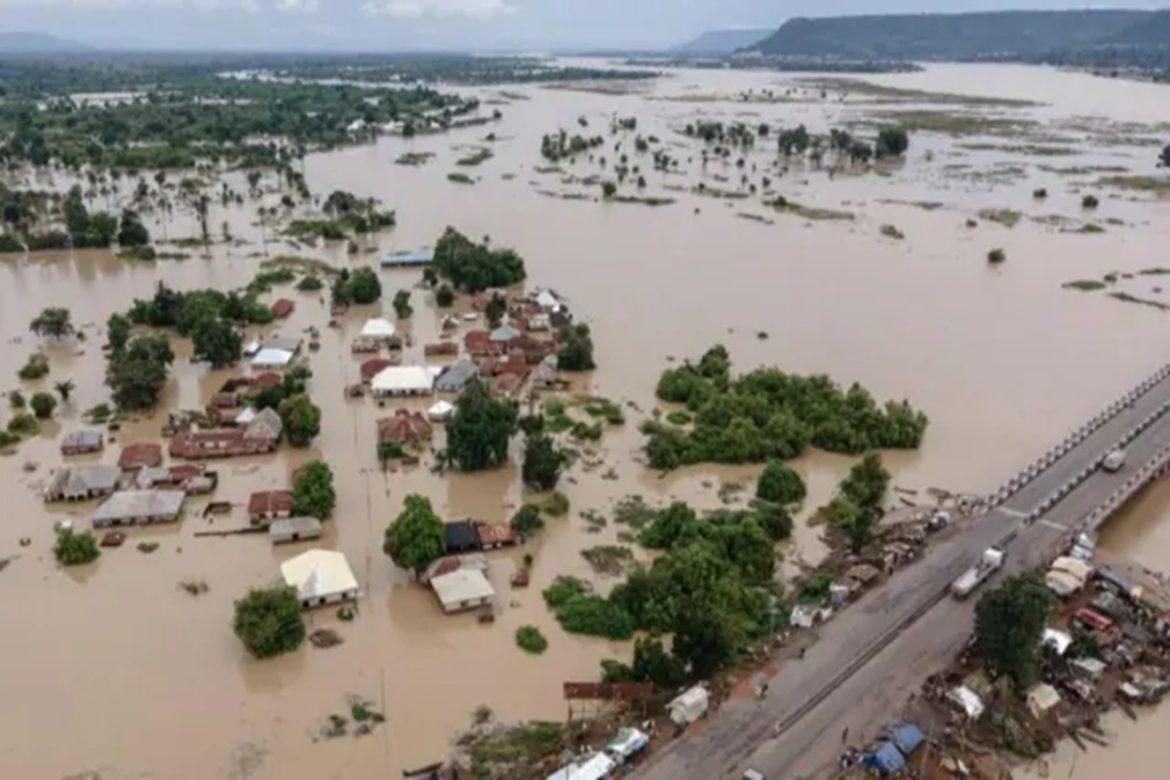Nigeria is facing one of its worst flooding disasters in recent years, with the death toll surpassing 500 and more than 1.5 million people displaced across 20 states. The catastrophic flooding, triggered by relentless rainfall and the release of water from Cameroon’s Lagdo Dam, has submerged entire communities, destroyed farmlands, and crippled infrastructure in regions already struggling with economic hardship.
Since the onset of the rainy season in April, Nigeria has experienced unusually heavy downpours, overwhelming rivers and drainage systems. Meteorologists attribute the extreme rainfall to climate change, which has intensified weather patterns across West Africa. The situation worsened in late May when Cameroon opened the floodgates of the Lagdo Dam, sending a surge of water downstream into Nigeria’s Benue and Niger rivers.
States along these riverbanks particularly Kogi, Anambra, Delta, Benue, and Bayelsa have borne the brunt of the disaster. In Lokoja, Kogi’s capital, entire neighborhoods have been swallowed by floodwaters, forcing residents to flee to higher ground. Major highways, including the critical Lokoja-Abuja road, have been rendered impassable, disrupting transportation and aid delivery.
The scale of displacement is staggering. Over 1.5 million Nigerians have been forced from their homes, with many now crowded into makeshift camps in schools and government buildings. Conditions in these shelters are dire: shortages of food, clean water, and medical supplies have led to outbreaks of cholera and other waterborne diseases.
“We lost everything our home, our crops, even our documents,” said Amina Yusuf, a mother of three sheltering in a camp in Anambra. “We don’t know when we can return, or if there will be anything left to return to.”
The National Emergency Management Agency (NEMA) has deployed rescue teams and distributed relief materials, but many survivors say help has been slow to arrive. State governments have set up emergency response units, but resources are stretched thin.
Critics argue that Nigeria’s flood preparedness remains woefully inadequate. Despite annual flooding, measures such as improved drainage systems, early warning alerts, and flood-resistant infrastructure have not been prioritized. “This is a recurring tragedy,” said environmental activist Chidi Nwafor. “Every year, we see the same scenes people drowning, homes destroyed and yet little is done to prevent it.”
Beyond the immediate human toll, the floods have inflicted severe economic damage. Farmlands across the Niger Delta, a key agricultural region, have been inundated, raising fears of food shortages and soaring prices. The World Bank estimates losses could exceed $2 billion, further straining Nigeria’s fragile economy.
In Delta State, rice and cassava farmers watched helplessly as their crops vanished underwater. “This was supposed to be our harvest season,” said farmer Emmanuel Okafor. “Now, we have nothing.”
Experts warn that without urgent action, future floods could be even deadlier. Proposals include:
Improved dam management, Nigeria must negotiate with Cameroon to coordinate water releases from the Lagdo Dam. Investment in drainage and urban planning Cities need modern flood control systems to handle increasing rainfall. Climate adaptation programs Reforestation, flood barriers, and resilient housing could mitigate future disasters.


